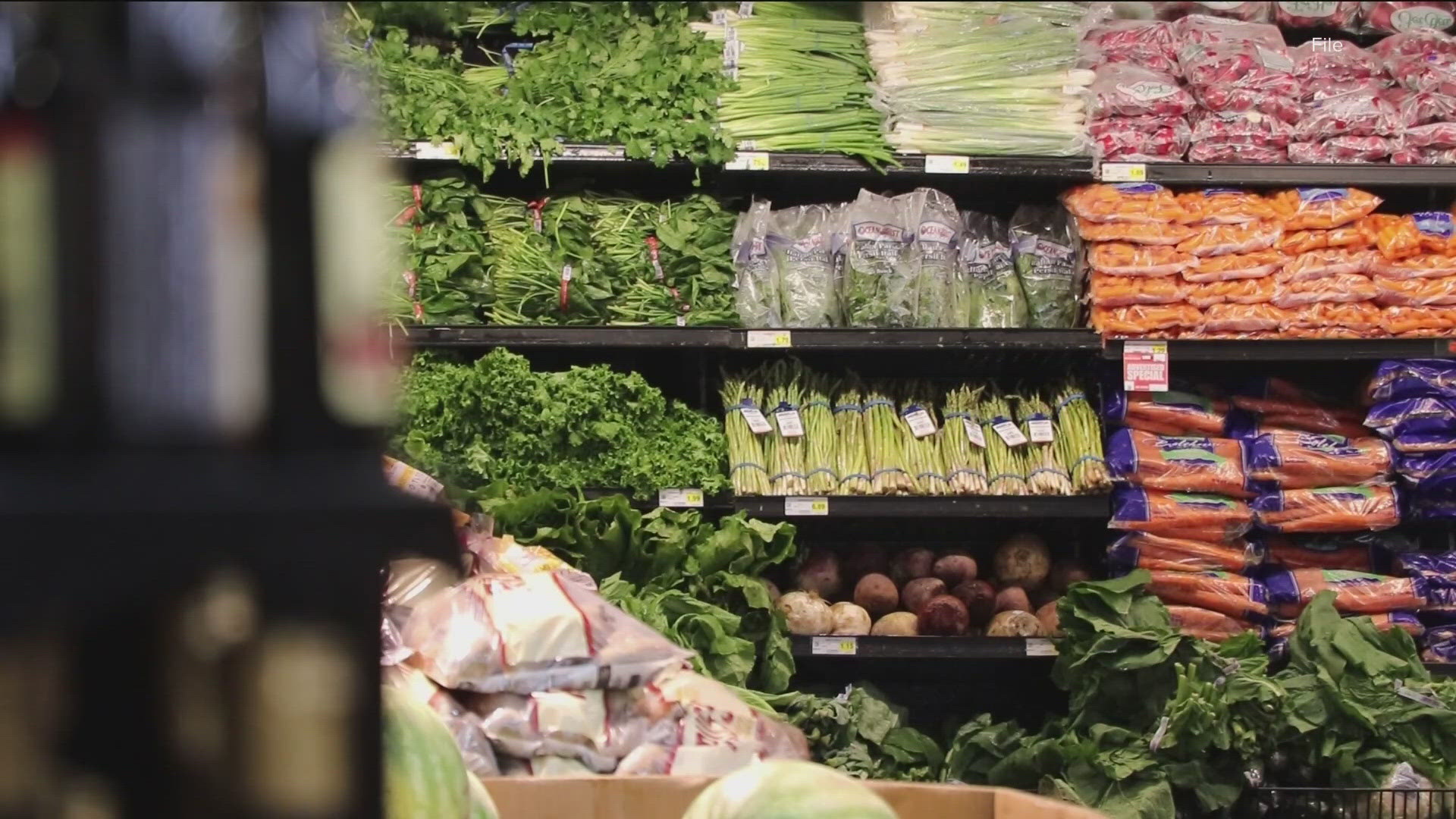ARKANSAS, USA — The United States Department of Agriculture (USDA) released a report in September 2024 detailing food insecurity numbers across the U.S., and Arkansas sat squarely at the bottom.
The report, based on data gathered by the U.S. Department of Commerce Census Bureau in 2023, found that around 86% of U.S. households were food secure throughout that entire year.
The amount of food-insecure households increased by a little under 1% between 2022 and 2023, according to the USDA.
"The prevalence of food insecurity was statistically significantly higher than the national average in seven states; Arkansas, Kentucky, Louisiana, Mississippi, Oklahoma, South Carolina, and Texas," the report reads.
In Arkansas, almost 19% of measured households were deemed food-insecure — the highest rate in the nation. New Hampshire had the lowest rate of food insecurity at just over 7%.
"People are desperate and they're in need," Director of the River Valley Regional Food Bank Tracy Engel said. "They may get commodities once a month, but that commodity just isn't holding them over, and with the cost of everything, they're living paycheck to paycheck, or barely making it at all."
Engel said she's noticed an uptick in people needing the food bank's services in recent years. She said they serve eight counties and 110,000 clients a month. The food bank relies heavily on donations and grants to help supply the community.
Engel added that food struggles in the state happen year round.
"The holidays are really hard, and we get really busy, but the summer months, when the kids are out of school, we had a grant this past summer, and that's where we were able to go into the rural communities with pop-up pantries and feed these communities that don't have a lot of pantries in their area," Engel said.
In a statement to 5NEWS, CEO of the Arkansas Hunger Relief Alliance Sylvia Blain said the numbers from the USDA were concerning, but there are ways residents can seek help.
"It's important to note that SNAP, the Supplemental Nutrition Assistance Program (formerly known as food stamps) is our first line of defense against food insecurity in Arkansas. Unfortunately, the majority of Arkansans who qualify for these critical federal benefits do not take advantage of them. Expanding access to and increasing participation in SNAP would significantly reduce hunger in our state."
For more information on food insecurity in the U.S. read the USDA report on their website here.
Watch 5NEWS on YouTube.
Download the 5NEWS app on your smartphone:
Stream 5NEWS 24/7 on the 5+ app: How to watch the 5+ app on your streaming device
To report a typo or grammatical error, please email KFSMDigitalTeam@tegna.com and include detail which story you're referring to.

